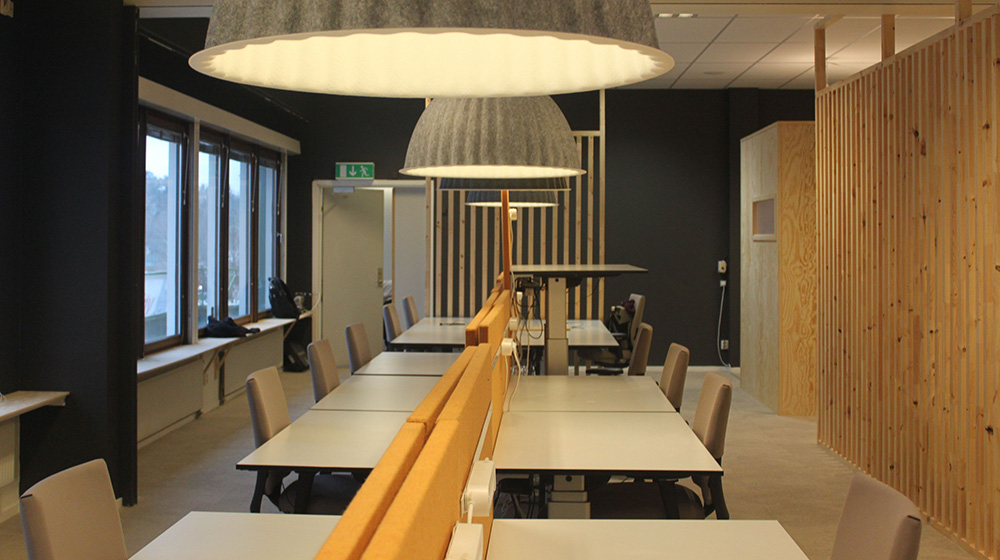Tullinge Work Hub Living Lab up and running again after pandemic

The living lab invites participants back after Covid-19 to continue investigate how working hubs closer to home can reduce time spent commuting and live more sustainably.
As of October 2021, the project have invited the participants of the living lab to resume working at the work hub (in accordance to the Swedish Public Health Agency regulations). While the project received many responses that stated that now, since the rules regarding remote work have been revised at their companies, participants feel working from home is a convenient alternative. There are about 12 participants who have been regularly working at the hub since early October 2021 (regulars).
In the past year and a half, we investigated various research themes exploring energy impacts of the hub, time use distribution of participants, conditions which encouraged the participants to or hindered the participants from spending more time at the hub etc. However, with the onset of the COVID-19 pandemic, immense changes have been observed in the attitudes towards remote working. As offices and universities have started to open up with this dramatic change in the attitudes towards remote working, the work hub could play an important role in enabling more remote working and potentially support more local and sustainable lifestyles, and reducing the need for travel.
Operational since January 2019, the Tullinge Work Hub Living Lab is fully equipped professional activity-based workspace, established in close proximity to the participants’ homes to investigate the possible effects of such a workspace on their travel and work behaviour. About 52 participants have been involved since February 2019 in various research activities covering information about their travel habits and work life and conditions.
As a follow up to previous research at the hub, during the months of October 2021 to January 2022, we plan to design and conduct another round of about 15 interviews with both types of participants. Based on data collected we will conduct qualitative analysis in order to investigate how the participants’ work and travel habits have changed in this new climate.

